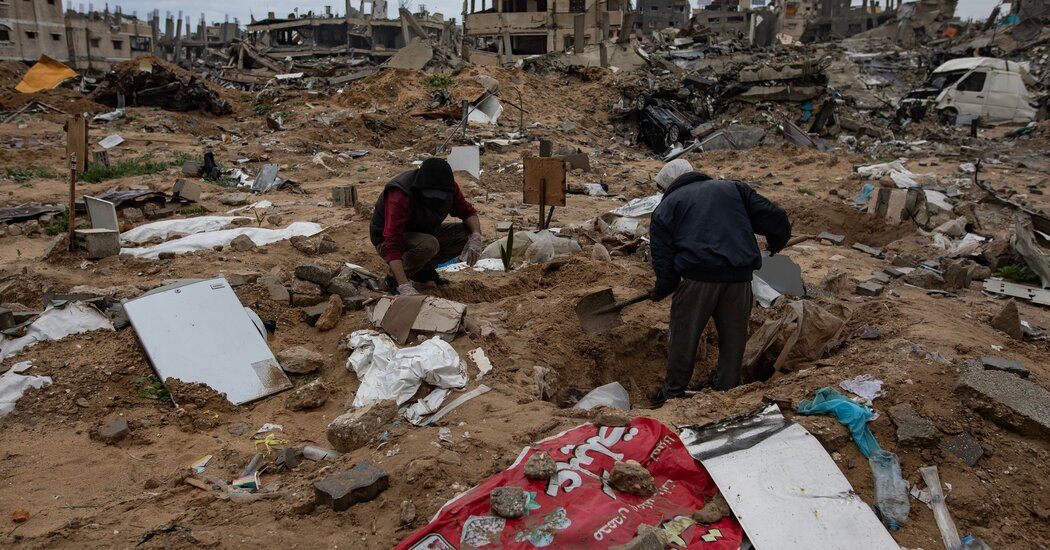Palestinians in Gaza Condemn Trump’s Takeover Proposal
Palestinians in Gaza expressed a mixture of condemnation and confusion on Wednesday over President Trump’s declaration that the United States should seize control of the devastated coastal territory and forcibly displace its entire population.
A number of Gazans said they found Mr. Trump’s comments reprehensible, noting they were in harmony with plans presented by far-right members of Israel’s governing coalition. But while some rejected leaving Gaza under any circumstances, others said conditions were so unlivable after 15 months of Israeli bombardment that they would consider relocating.
“I need to stay in my land. My life, my family, and my memories are here,” said Mohammed Fares, 24, a resident of Gaza City who was displaced to the southern city of Khan Younis. “I have something in Gaza I can’t get anywhere else. I’ll stay, even through hell.”
Mr. Fares said he was staying at a relatives’ home in Khan Younis because his family’s home in Gaza City was in tatters and because there was little water available there.
About two million Palestinians remain in Gaza after a war that has reduced cities to rubble and killed tens of thousands of people. Israel waged a war against Hamas after the armed Palestinian group led the Oct. 7, 2023, attack on Israel, which killed about 1,200 people.
Mr. Trump said that all Palestinians in Gaza should be moved to neighboring Arab countries such as Egypt and Jordan because of the devastation wrought by the war.
Palestinians blasted the notion of forced displacement, though some said they would be open to finding a more stable life outside Gaza.
“It’s unacceptable to expel people from their homes,” said Mukhlis al-Masri, 33, a resident of the northern town of Beit Hanoun displaced to Khan Younis. “But I never thought I would get to this place, where everything is a struggle.”
If he were able to move outside Gaza, Mr. al-Masri said, he would.
“Do I want to live through a tragedy for another 20 or 30 years? Do I want to continue to live through hell? “I can’t.”
Since a cease-fire between Israel and Hamas came into effect on Jan. 19, the entry of humanitarian aid to Gaza has surged but residents have said restoring a relative degree of normalcy still feels years away. The simplest of tasks before the war — charging a phone or bathing — have become daily ordeals.
To take a shower, Mr. Mukhlis, his wife, and three sons lay out a sheet of plastic across a classroom at a United Nations school and dump glasses of water on themselves, he said.
Other Palestinians criticized Mr. Trump’s claim that they would live in “peace and harmony” in new places outside Gaza.
Some Arab countries have seriously restricted the rights of Palestinian refugees. For example in Lebanon, they are barred from working in several professions.
“Arab countries consider us 7th-class citizens,” said Abd al-Rahman Basem al-Masri, 27, a doctor from the central Gaza city of Deir al Balah. “Why should I leave the land of my fathers and forefathers for that?”




Post Comment